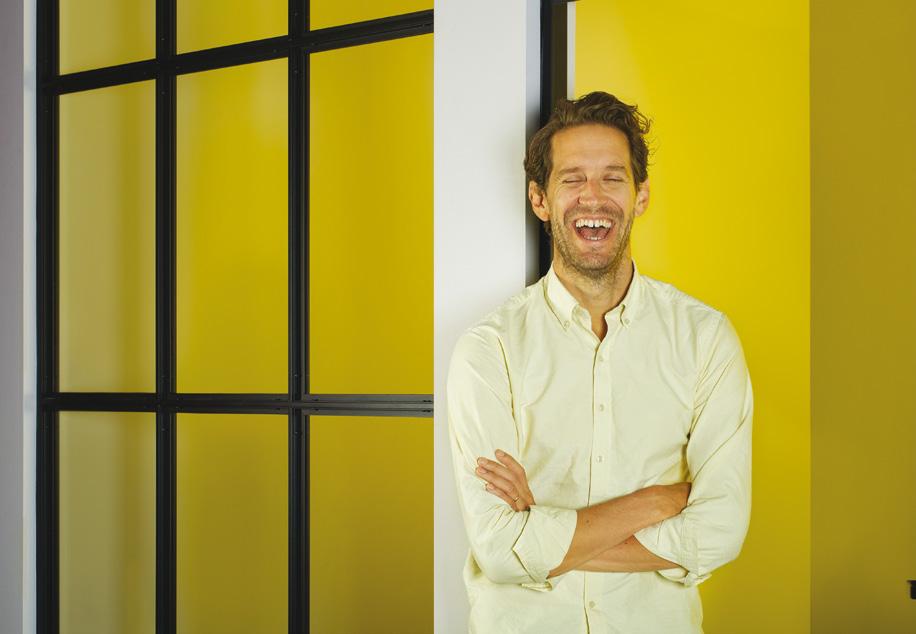
5 minute read
NEVER STAND STILL
from EBM Magazine #15
NEVER STILL STAND STILL
Words by Rachel Zammit Cutajar
Advertisement
Innovation strategy now sits with commercial planning, marketing, sustainability, and HR management as key elements in the success of a business. Multi-year plans with clearly defined objectives and barometers of progress ensure that innovation is plotted and appraised meticulously. Johan Strand, the new CEO at Zimpler, believes that the company needs to be constantly on the move to create pioneering products that will allow them to retain market share, and keep the company growing from strength to strength.
Failure to innovate is among the biggest threats to any organisation, and this resonates clearly for any tech company. If the prize of successful innovation is demonstrated by companies such as Facebook, Google, Netflix and Apple, the lessons of failure lie in the companies that are left in their wake. Blackberry once boasted half of the world’s smartphone market, and now struggles to achieve less than 1%. Meanwhile, Blockbuster turned down the opportunity to buy plucky start-up Netflix for a mere $50 million; it is now defunct. Innovation in fintech companies is allowing organisations to service customers in new and unexpected ways. With experimentation in automation, predictive analytics, new delivery platforms, digital-only banking, blockchain and more, companies in the fintech industry need to be one step ahead to remain relevant. “Five years ago, we could have not conceived the idea of the products we’re offering today, let alone build them. To think that what we can get by with the products we have today in five years would be sheer lunacy. In order for us to thrive, we need to be challenging the status quo, and fostering a culture of innovation.” Johan’s management style - refusing to stand still by taking any challenge that comes his way - is reflected in his personal life. In 2012, he founded the uphill race Stockholm’s Brantaste (translated as Stockholm’s Steepest), a gruelling 3.3km run up Stockholm’s highest hill. “We wanted to create something that hasn’t been done before. Something challenging. This was the first mountain run in Sweden, and has been successful for six years.” Though the race is short, the terrain is tough, with runners averaging their 5k pace throughout the race. “It takes a certain kind of runner to get involved in something of this nature, where every step is a challenge. You need to have a bold and innovative mindset to make it to the top.”
This attitude is reflected in the company culture at Zimpler. When recruiting, they’re looking for people who don’t step back from a challenge, who see something that hasn’t been done before and jump right in, finding the most efficient solutions to the task at hand.




Johan compares uphill running to building a company. “Building a fintech company is a constant struggle. There are many competitors and investors that are ready to put money into other people’s ideas. To be successful, you have to be running faster than everyone around you, even when you feel like it’s impossible to take another step.
“Managing the company is a little like being in an uphill race. If you had to ask me how things are going on the average day, I’m constantly considering all things ahead, and what I want us to achieve as a company. When you look back at where you were six months ago, you can see that the company has moved forward in leaps and bounds. The feelings in the middle of the race are similar. You feel like there’s still so far to go, and that you’re not really getting anywhere quickly, but only when you look back and see the mountain sloping behind you can you see how far you’ve come. Sometimes you need to take a step back, to see the bigger picture to be motivated to keep moving forward. The reward when you reach the top is definitely worth it!”
Johan insists that fostering an innovation culture starts with transparency and allowing employees to make a difference. Apple co-founder Steve Jobs famously once said: “It doesn’t make sense to hire smart people and tell them what to do; we hire smart people so they can tell us what to do.” This sentiment is reflected in the innovation strategy at Zimpler, as every employee is encouraged to put forward new ideas. They work in a typically flat method, avoiding hierarchies and silos. “We are looking for original ideas from everyone, whether they work in product development or sales,” Johan said. In a competitive marketplace, consumer confidence is always important. So, financial institutions who can embrace innovative solutions will enjoy sustained consumer loyalty.
Johan has just taken the reins at Zimpler, promoted from Chief Financial Officer in June. A Swedish fintech company with an office in Malta, Zimpler provides payment services for the iGaming industry, as well as other sectors. As the company is experiencing rapid growth, growing from 40 employees to over 100 in the last eight months, he has his work cut out for him. “When the company is small, it’s easy to know what’s going on around you – what everyone else is doing – but as the company grows, this becomes more challenging. We’re working on a transparent system so that information can be shared across departments. We don’t believe that any information is on a need-to-know basis, as everyone needs to know. Holding all of the cards is critical when it comes to creating new ideas.”
Johan insists that this need for speed is vital for the survival of any tech company operating in today’s market. “Everything is changing so quickly, in society as well as in business. Even if you miss a message in a thread, you’re out of the loop and miss out on opportunities. To stay on top of the game, we need to be challenging the status quo. We are working on new products that use biometrics, blockchain and cryptocurrencies, artificial intelligence, as well as cloud technologies, among others. We’ve always been good at innovation, and we plan to strengthen the things we do well.”










